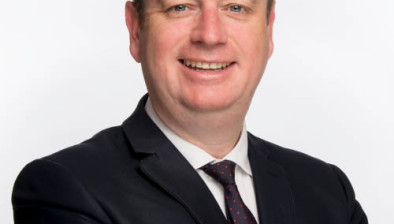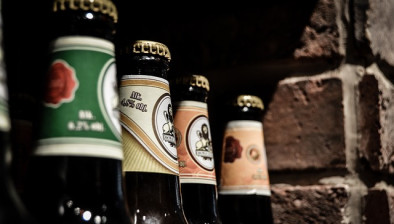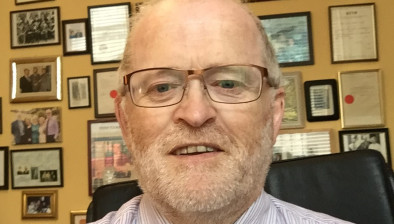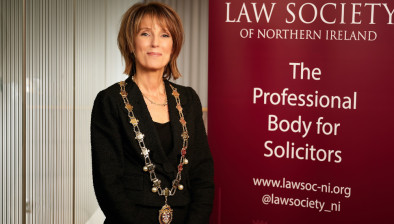Bill Holohan SC: Licensing reform now and over the years

Bill Holohan SC
Bill Holohan SC offers thoughts — and a bit of legal history — on the government’s landmark licensing law reforms.
Last week, Justice Minister Helen McEntee received cabinet approval to reform Ireland’s “antiquated licensing system”. The current system is made up of a “patchwork of 100 laws” — some of which are over 200 years old and two thirds of which pre-date the foundation of the State 100 years ago.
Minister McEntee believes the laws are in significant need of reform, and has published the General Scheme of the Sale of Alcohol Bill to outline how she intends to implement these reforms. In spearheading this initiative, she is echoing the words of one time Minister for Justice and Attorney General Michael McDowell SC, who had a vision of a “café society”.
Legal reforms
As the Department announcement of the reforms makes clear, reforms to come into place include alcohol being sold earlier on a Sunday and, as you’ve probably heard, nightclubs being allowed to remain open until 6am. McEntee believes changes such as these will “support the development of night time culture and the night time economy”. These reforms include:
Annual permits for late bars and nightclubs
The permits would replace the current system where a Special Exemption Order (SEO) is required every time a venue wants to open after normal hours. This builds on previous measures introduced by the government to support the late night sector, such as the decision to halve the cost of SEOs in Budget 2023.
6am closing time for nightclubs
The reform intends to bring Ireland up to speed with other European countries, giving nightclubs the option to serve alcohol until 5am and remain open until 6am for dancing. Late bars will be permitted to open until 2.30am.
Strict requirements
Nightclubs and late bars will have to adhere to strict requirements to avail of these permits. They will require court approval, and objections will be allowed from fire authorities, the HSE, An Garda Síochána and local communities.
Other requirements
CCTV on the premises, and nightclubs and bars must also have security staff properly accredited with the Private Security Authority.
20 per cent of the floor allocated for dancing, and a live band or DJ must be playing.
All venues must protect staff, patrons, and performers from harassment, including sexual harassment in line with the new Night Time Economy Charter and the government’s Zero Tolerance Plan to tackle domestic, sexual and gender-based violence.
Off-licence opening hours
Off-licences and supermarkets will have the option of selling alcohol from 10.30am to 10pm seven days a week. This is a change from the current position where these hours apply six hours a week, with Sunday sales only permitted from 12.30pm on Sunday.
Reform of the ‘extinguishment’ provision
The so-called extinguishment provision means that anyone seeking to open a new premises, or an off-licence, must first purchase a licence from an existing licence-holder in order to do so. This can be an issue for opening a new pub in towns and villages where some premises have shut, particularly in rural areas.
After a transition period of three years following the enactment of the Bill, Minister McEntee proposes to remove the extinguishment requirement to obtain a seven day on-licence. However, the ‘extinguishment’ requirement will remain in place for off-licences, and will only be applicable to licences already in existence on the enactment of this bill. No new licences granted under this bill could be sold for extinguishment purposes.
New “cultural amenity licence” for cultural venues
This new license will permit galleries, theatres, museums, and other cultural venues to sell alcohol between one hour before and one hour after a performance takes place. These licences will also require court approval and will have to meet the same requirements as a fully licensed premises, and will strictly be available for venues where the sale of alcohol is not the main activity on the premises — people must be attending the venue for a separate reason, e.g. an exhibition.
Details of the licensing law reforms will be announced once the Cabinet agrees to overhaul the rules governing the opening of pub, clubs, and late bars. The reforms are expected to come into effect sometime next year.
Licensing over the years — the “café society” & such concepts
The Licensed Vintners Association (LVA) has said the reforms of the licensing laws will make them “fit for the 21st century” following the announcement of the new legislation from the Department of Justice. This is in marked contrast to their reaction over decades when previous proposals for reform were mooted.
It is over 16 years since Michael McDowell as Justice Minister had great plans for a “café society” in this country as he introduced new licensing laws. What was then described as “radical” was a series of measures, including the establishment of continental-style café bars, to be introduced in a bid to help eliminate binge drinking. The aim was to create a new culture where drinking would be combined with eating and socialising as part of a night out. At the time, Minister McDowell said:
“We want a scenario where people can have a pizza with a pint instead of drinking themselves senseless and that needs a cultural shift in this country in our approach to alcohol consumption.”
This proposal emerged initially from the final report of the Commission on Liquor Licensing established in December 2002 (chaired by now deceased colleague Limerick solicitor Gordon Holmes) and was intended to have a number of safeguards to prevent abuses of new licences which were to be available only for premises of less than 130 square metres.
As the Irish Examiner reported at the time of the delivery of the Final Commission Report in May 2004, the intention was to encourage this culture through the establishment of Mediterranean-style café bars which will provide food as well as drink and create an atmosphere that promotes moderate drinking.
“While the Commission was trying to finalise its recommendations, the lack of a clear Government policy became very apparent”, Mr Holmes said at the time, pointing out that representatives from the Departments of Health and Enterprise, Trade and Employment were opposed to each other. “You had Enterprise pushing for a free market on alcohol and Health demanding that it be limited, so it was impossible to get agreement when they were both pushing two different agendas.”
Of necessity, the final report was a bit of a fudge, despite what I thought was a very good submission from me. I had been commissioned by the various theatres in Dublin to put together a submission for them.
While a “café society” may have been or may be the style in Michael McDowell’s leafy suburb of Ranelagh on southside Dublin, where the sun probably always shines, it never really took off that much in places around the country, unless you had a pub with a decent beer garden. But the last two pandemic governed years have caused people to look at things afresh. And observe and consider things more. And new opportunities being presented by the outdoor dining schemes promoted by the government in response to the pandemic have also opened up new possibilities.
Licensing — a little bit of history and a little bit of expertise
While in more recent years, my name has featured predominantly for alternative dispute resolution, and since two decades before that was generally associated with bankruptcy law, another area where I have done enough a lot of work over the years has been in the area of licensing law. Back in 1991, I took a case on behalf of the Point Exhibition Company Ltd, the owners of the Point Depot (now the 3 Arena) which had been established in 1988 by Harry Crosbie as an entertainment and exhibition venue. I wonder how many of you actually know that the Point Depot up to the 1980s was a very large railway shed! That depends on your generation.
The case I took behalf of the Point eventually ended up being reported as [1993] 2 I.R. 551 - [1993] ILRM 621. Lynch J in the High Court had previously decided that a theatre was not a suitable place to which a pub licence could be transferred. Those of you who are old enough to remember will now that this meant that at the southern end of the Point Depot complex you had Harry’s Bar, which of course had to be structurally separated from the theatre itself. That meant that firstly patrons had to go out, sometimes in the rain, into the car park, to go around the building, to get back into the theatre.
The Point, at the time, for a number of years had been paying a small fortune to one of the large glass palace firms in Dublin, getting them to try and lobby the Attorney General to grant a patent which would enable the Point to get a theatre licence, a privilege enjoyed at the time by the likes of the Abbey Theatre Gaiety Theatre, Olympia Theatre et cetera, which enabled them to serve alcohol from a bar within the theatre complex.
Despite pocketing a very large amount of money, the glass palace firm did not either now nor did they advise the Point that the Attorney General of the day in 1965 advised that the exercise of the former royal prerogative to grant patents was inconsistent with the constitutional nature of the State, and the practice of issuing such patents had ceased in 1965. (The consequence of this was that the theatres in Dublin for the next quarter of a century, merrily continued to serve alcohol, but in fact were not properly licensed.)
The Excise Act of 1835 (5 & 6 Will. 4) c. 39 provided:
“It shall be lawful for the commissioners and officers of excise, and they are hereby authorized and empowered, to grant retail licences to any person to sell beer, spirits, and wine in any theatre established under a royal patent, or in any theatre or other place of public entertainment licensed by the lord chamberlain or by justices of the peace, without the production by the person applying for such licence or licences of any certificate or authority for such person to keep a common inn, alehouse, or victualling house; any thing in any Act or Acts to the contrary notwithstanding.”
The problem was that it had been generally accepted since 1881 that the right to make such an application had been abolished and this was confirmed in all the great licensing authorities Schilling, O’Connor et cetera. However this was a mistake, even by those great men.
The 1880s amending legislation which it was thought (and taught) had revoked the right to apply for a licence, had not in fact done so, because that amending legislation only obliged to England and Wales and not to Ireland. I realise this because I did not rely on the textbooks, but went back to the actual legislative sources themselves.
When I realised this, I arranged a meeting with an official of the Customs & Excise Branch of the Revenue Commissioners (who happened to be a Corkman – of course). He was not a licensing expert, but I took him through the whole story and explained that the Point was therefore entitled to a theatre licence under the 1835 Act on the basis of being a licensed place of public entertainment, the Point holding both a music licence and a dance licence. His reaction was essentially: “If you are right, then every hole in the wall with some kind of plinky plonk entertainer in the corner, will be able to operate 24 hours serving booze.” (A bit of an overstatement but the essential point was there.)
I said that if the Revenue Commissioners would very quietly issue a licence to the Point Depot, no one need be the wiser. He politely declined, obviously been concerned about the precedent that would be created. Accordingly, on behalf of my client I made the application to the Revenue Commissioners for the grant of the Licence under section 7 of the Excise Act 1835 on the basis that the Point was a licensed place of public entertainment entitled to make application, holding licences for entertainment in the form of a music and singing licence granted under the Public Health (Amendment) Act 1890, and a public dance licence granted under Public Dance Halls Act 1935.
The response from the Revenue – best summarised with a certain song: “Silence is golden! But my eyes still see. Silence is golden, golden, but my eyes still see.”
And so to court! Having built up the appropriate paper trail over a period of six months, we then launched judicial review proceedings with a view to getting an order of mandamus against the Revenue Commissioners forcing them to issue the licence. Counsel instructed by me for were Tom Morgan BL, the then renowned licensing counsel and now retired father of renowned licensing counsel Kerry-Jane Morgan BL who follows in her father’s footsteps, and James O’Reilly SC (who thankfully is still in practice). The matter came for hearing before now retired High Court judge Hugh Geoghegan.
The nature of the application having been outlined in the opening by James O’Reilly SC, the judge enquired if he was entitled to take judicial notice of Mr Morgan’s licensing expertise (“laughter in court”). James also made reference in his opening remarks to the various textbooks to which he would be making reference and upon which he would be relying, which brought the query from the bench as to whether or not my learned senior counsel would prefer to rely on his own book as an authority to which James responded by referring to the convention operating at the time that a book by an author could not be relied upon as an authority unless the author were dead, and that on balance he prefer that he not be relied upon as an authority for some time further (more “laughter in court”). Thankfully, 30 years later, James is still with us, hale and hearty.
The Revenue, in the main, fought the case on the floodgates argument, i.e. that it could lead to almost 24-hour drinking in every hole in the wall in the country on a scale not seen since the worst excesses of the days of the Roman Empire.
You can read the judgement Point Exhibition Company Limited v Revenue Commissioners [1993] 2 IR 551; [1993] ILRM for yourself, but essentially the learned judge decided that while he wasn’t going to exactly set out what a place of public entertainment was, he was satisfied that the Point was one. Secondly, he wasn’t going to set out exactly what a licensed place of public entertainment was, but the Point was one. Currently, in a bit of a damage limitation exercise to try to appease the Revenue, given that the provisions of the Public Health (Amendment) Act 1890, which provided for music and singing licences, only applied to urban areas which have adopted the provisions of the 1890 Act, he would decide the Point’s application only on the basis that it held a music and singing licence, but that he need not deal with the question of someone relying on a dance licence. This then led to a variety of other cases in succeeding years.
Thereafter, I developed a very healthy licensing practice with particular emphasis on theatres and places of public entertainment, in particular following the decision of the Supreme Court in DPP versus Tivoli Theatre [1998] IESC 54 in which in December 1998, I appeared in the Supreme Court, “without the aid and assistance of counsel”.
Myself and my then apprentice were on one side and the Supreme Court and two senior counsel, junior counsel and instructing solicitor were on the other side. The court presided over by Hugh O’Flaherty, with Frank Murphy and Henry Barron. Naturally, O’Flaherty was in the centre, with Henry Barron to his left Frank Murphy to his right. Frank Murphy knew me well from his days as the High Court judge who dealt with bankruptcy so when you O’Flaherty enquired if I was waiting on counsel, and when I responded: “My Lords I appear without the aid or assistance of counsel”, Frank Murphy very graciously responded with “Oh, Mr Holohan, this court knows you need neither the aid nor the assistance of counsel”, which led to an almost whiplash inducing turn of heads by O’Flaherty and Barron to look at Murphy in what appear to me to be some astonishment at the idea that a mere solicitor, appearing in the Screen Court, would “neither the aid nor the assistance of counsel”.
At issue in the case, which was a case stated from the Circuit Court to the High Court, was the legitimacy of standing concerts, in circumstances where there was a requirement under the Intoxicating Liquor Act 1927, that before being allowed into a theatre or a place of public entertainment after 9.30pm in the evening, one had to have previously engaged for paid for a seat for the performance in such (which explains why, if you want to go to such a venue in Dublin after that hour of the evening, they will sell you a ticket out of the window first).
I had argued the case in the High Court (again without barristers) before His Honour Judge Sheridan, then President of the Circuit Court, who was sitting in the High Court in his capacity as a High Court judge. I was not successful before him, hence the journey to the Supreme Court.
The State prosecution case in the District Court, the High Court and the Supreme Court was simply stated: if you had to have a seat, and there were no seats, a crime had been committed.
Something that they can put on my tombstone — I successfully persuaded the three judges of the Supreme Court that a seat in a theatre or a place of public entertainment in Ireland is not something you sit on, pressing your body weight in a sedentary position on a supporting structure, but rather that it is the airspace you occupied from the moment you enter the premises until the moment you leave (constructing a successful argument involved, inter alia, a detailed examination of tax law).
As an aside, Mr Justice Barron asked me why, at 9.29pm in the evening, if he were to enter a theatre without having previously engaged for or paid for a seat for the performance in session, he could do so lawfully, and the proprietor could permit admission without committing an offence, but two minutes later at 9.31pm both of them would commit an offence if he were to enter. I pointed out to him that in order to understand that particular legislative provision, one had to have knowledge of the 1927 Act in some detail, and more particularly the provisions relating to the closing times of public houses in Ireland in 1927. (Did I ever tell you I am a bit of a legal history nerd?)
Yes, I know you must have guessed it: the closing time of a public house in Ireland in 1937 was indeed 9.30pm, and obviously the legislative intent was to prevent people leaving public houses and repairing to the nearest theatre place of public entertainment, unless they were prepared to pay the price of entry, i.e. a ticket for the performance.
In the event, after the hearing I was able to follow the example of American gospel singer and songwriter Dorothy Norwood and sing “Victory Is Mine”.
Over the years, I secured theatre licences for such disparate entertainment venues as theatres, art galleries, bowling alleys, bingo halls, chess clubs, cinemas, supper clubs, and somewhat more sensationally, “gentlemen’s clubs”, otherwise known as “lap dancing clubs”. I have lots of stories I could tell you about this last category, but I will save those for another day.
So, if you think I can help with a licensing query, you know where to find me.
And so, the reason all that happened — because before they came to me, the Point Depot had incompetent advisers.
- Bill Holohan SC is a partner at Holohan Lane LLP.









